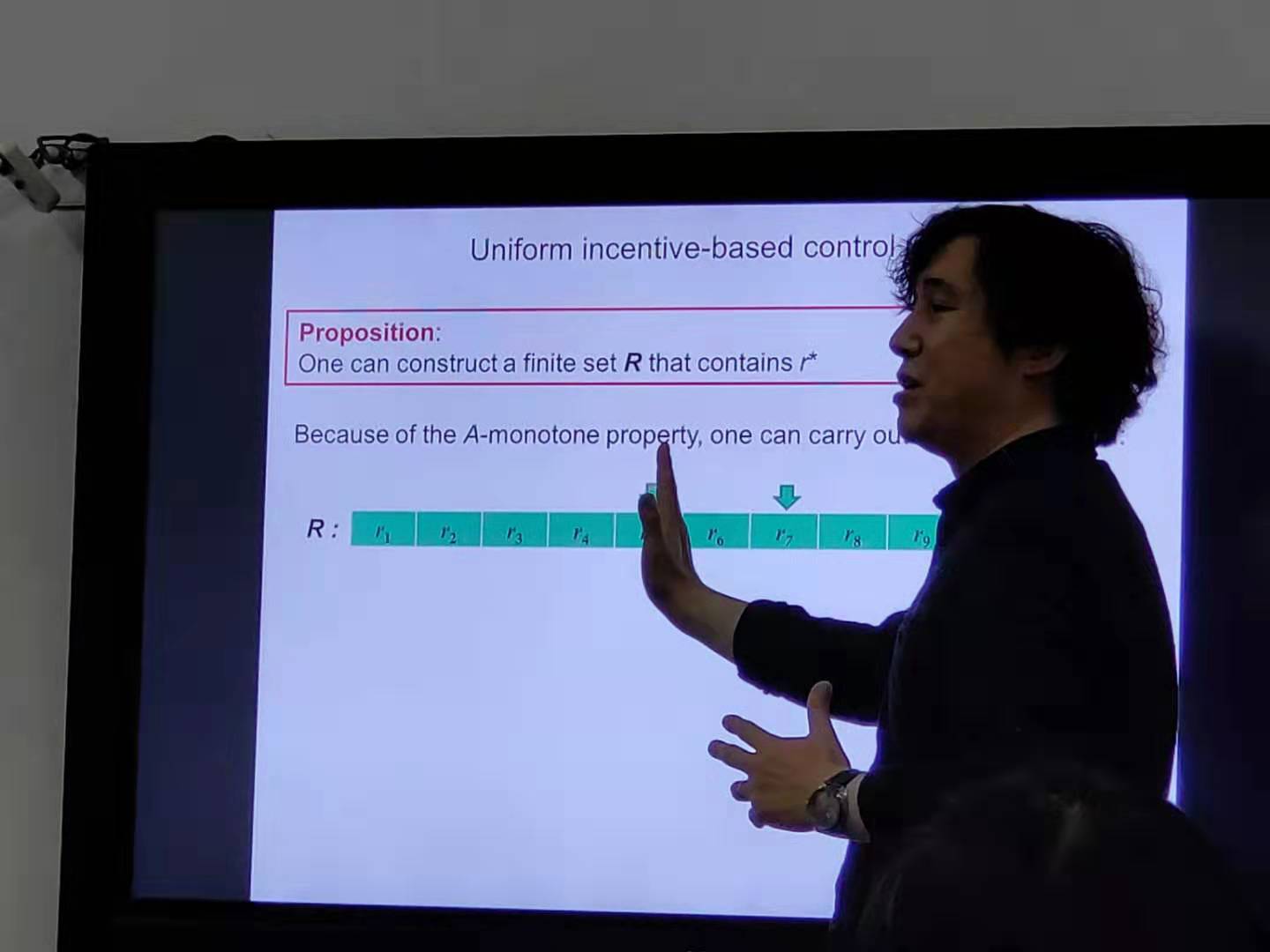报告人:Prof. Ming Cao University of Groningen
时 间:9月28日 10:00-11:00
地 点:工学院力学楼314
主持人:谢广明 教授
报告人简介:
Ming Cao has since 2016 been a professor of systems and control with the Engineering and Technology Institute (ENTEG) at the University of Groningen, the Netherlands, where he started as a tenure-track Assistant Professor in 2008. He received the Bachelor degree in 1999 and the Master degree in 2002 from Tsinghua University, Beijing, China, and the Ph.D. degree in 2007 from Yale University, New Haven, CT, USA, all in Electrical Engineering. From September 2007 to August 2008, he was a Postdoctoral Research Associate with the Department of Mechanical and Aerospace Engineering at Princeton University, Princeton, NJ, USA. He worked as a research intern during the summer of 2006 with the Mathematical Sciences Department at the IBM T. J. Watson Research Center, NY, USA. He is the 2017 and inaugural recipient of the Manfred Thoma medal from the International Federation of Automatic Control (IFAC) and the 2016 recipient of the European Control Award sponsored by the European Control Association (EUCA). He is a Senior Editor for Systems and Control Letters, and an Associate Editor for IEEE Transactions on Automatic Control, IEEE Transactions on Circuits and Systems and IEEE Circuits and Systems Magazine. He is a vice chair of the IFAC Technical Committee on Large-Scale Complex Systems. His research interests include autonomous agents and multi-agent systems, complex networks and decision-making processes.
报告内容摘要:
In response to the growing interest in how to efficiently influence complex systems of interacting self-interested agents, new efforts have been made to address open problems related to the analysis and control of evolutionary matrix games, with particular emphasis on applications in social, economic, biological and robotic networks. In our evolutionary game models for networks of interacting agents, we consider both the decision-making dynamics of interacting multiple populations and the evolution of the environment affecting the game payoffs. It is then possible to perform global convergence analysis for the resulting closed-loop co-evolutionary dynamics, to identify in particular under what conditions the dynamics converge to periodic orbits. The goal is to build a general framework towards optimal control of evolutionary games on networks and ultimately resolving social dilemmas in large populations of interacting self-interested agents.

Figure:Prof. Ming Cao





 科研方向
科研方向